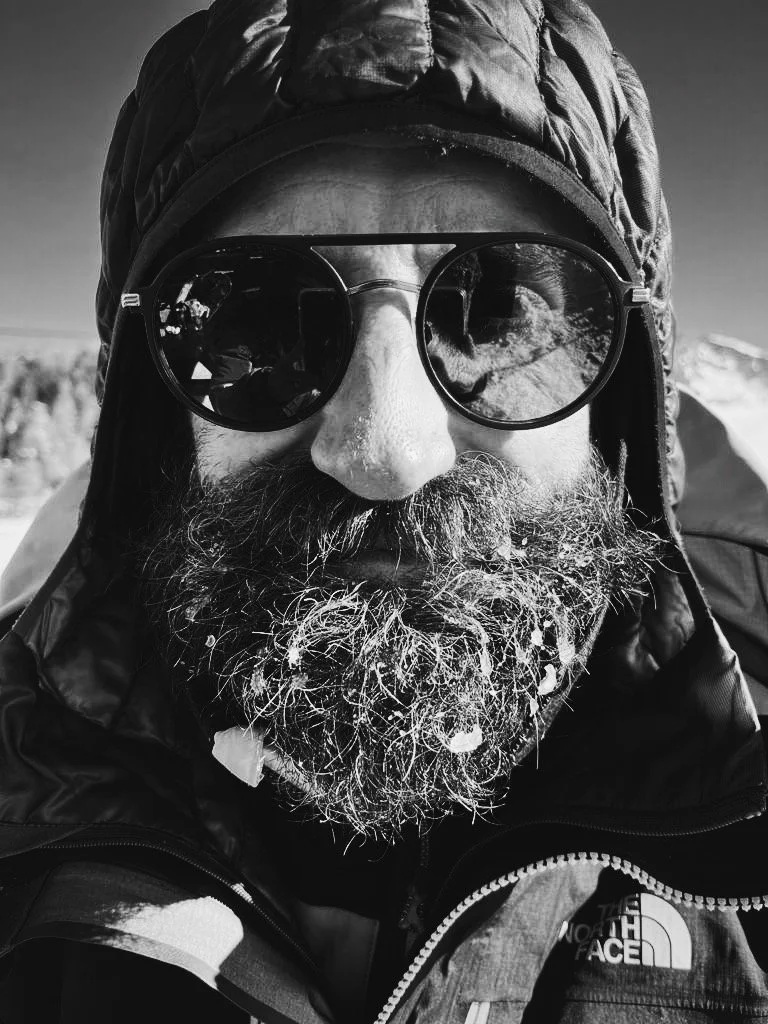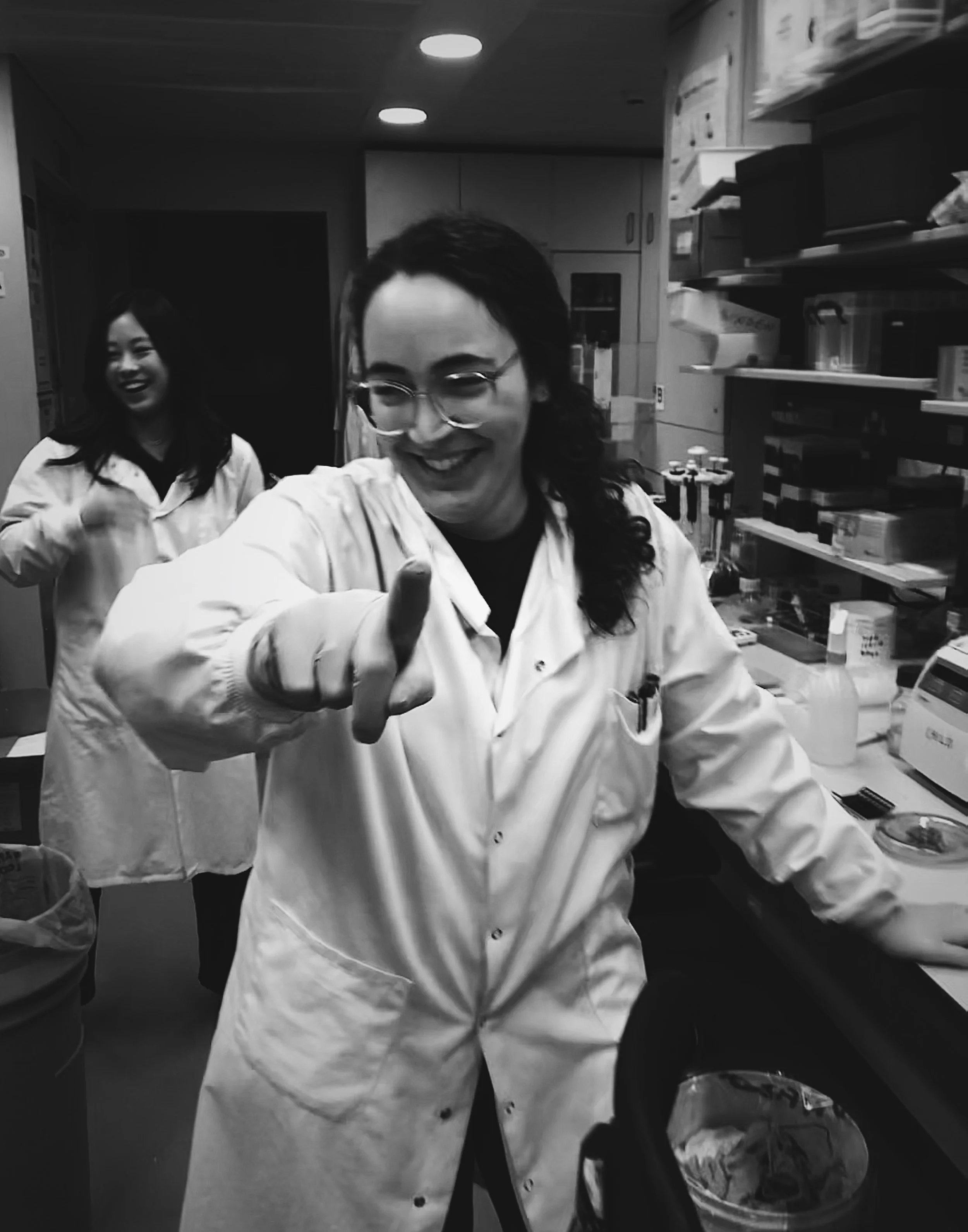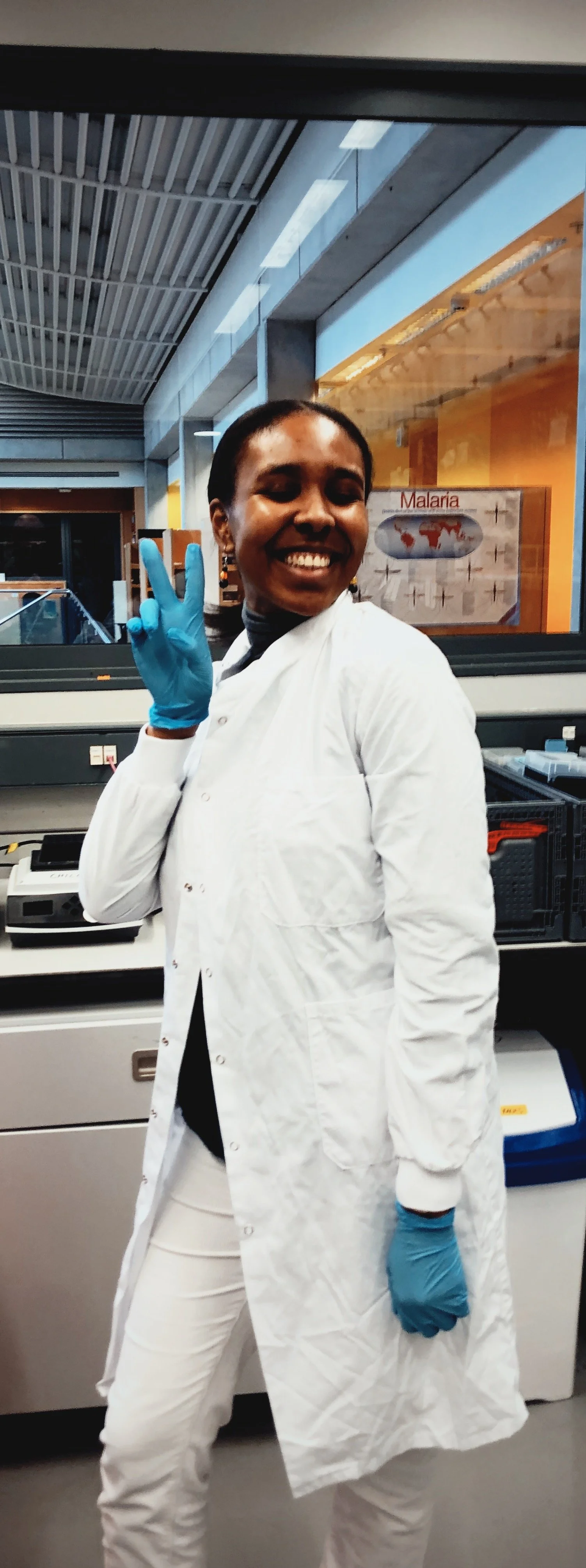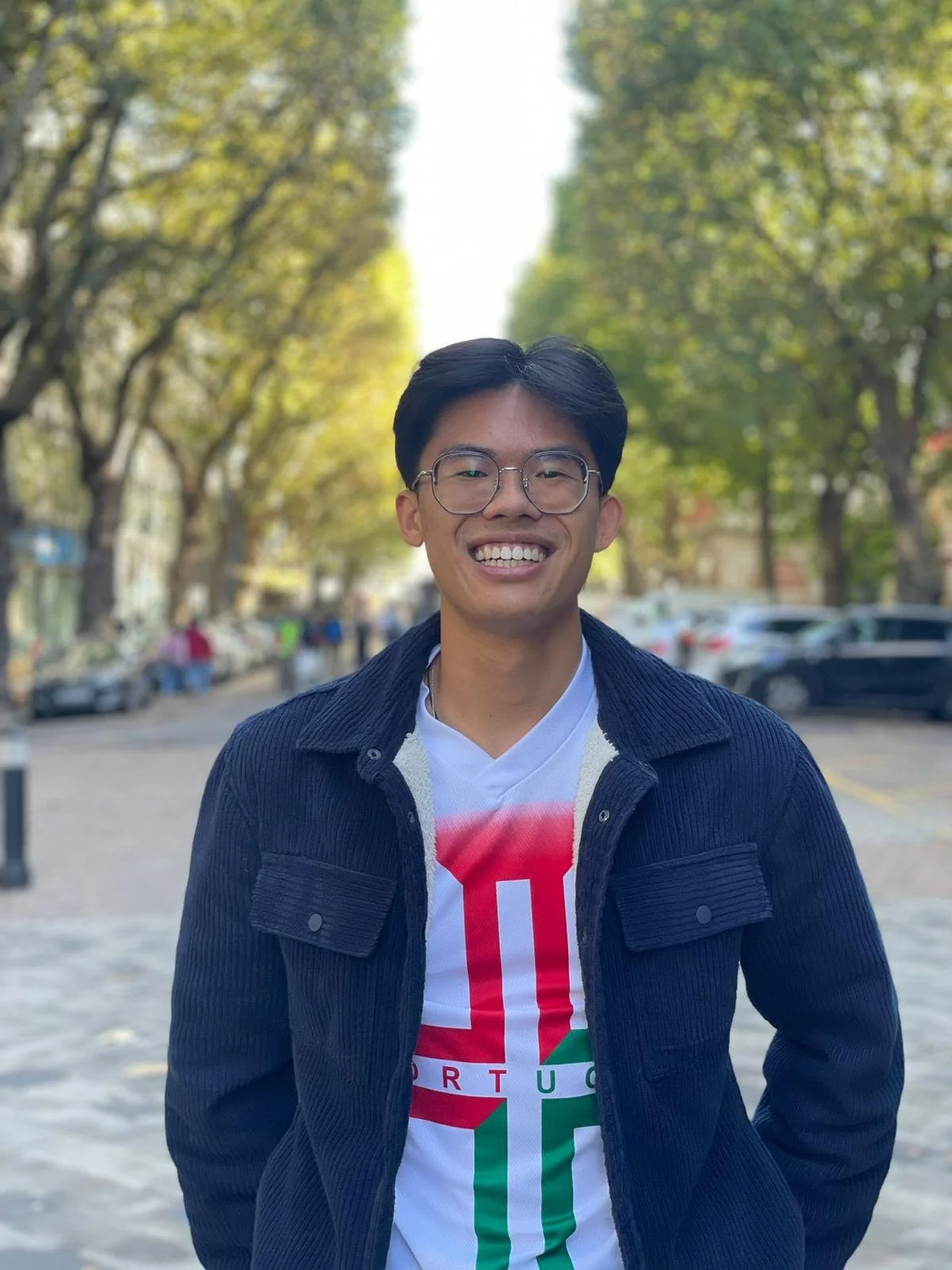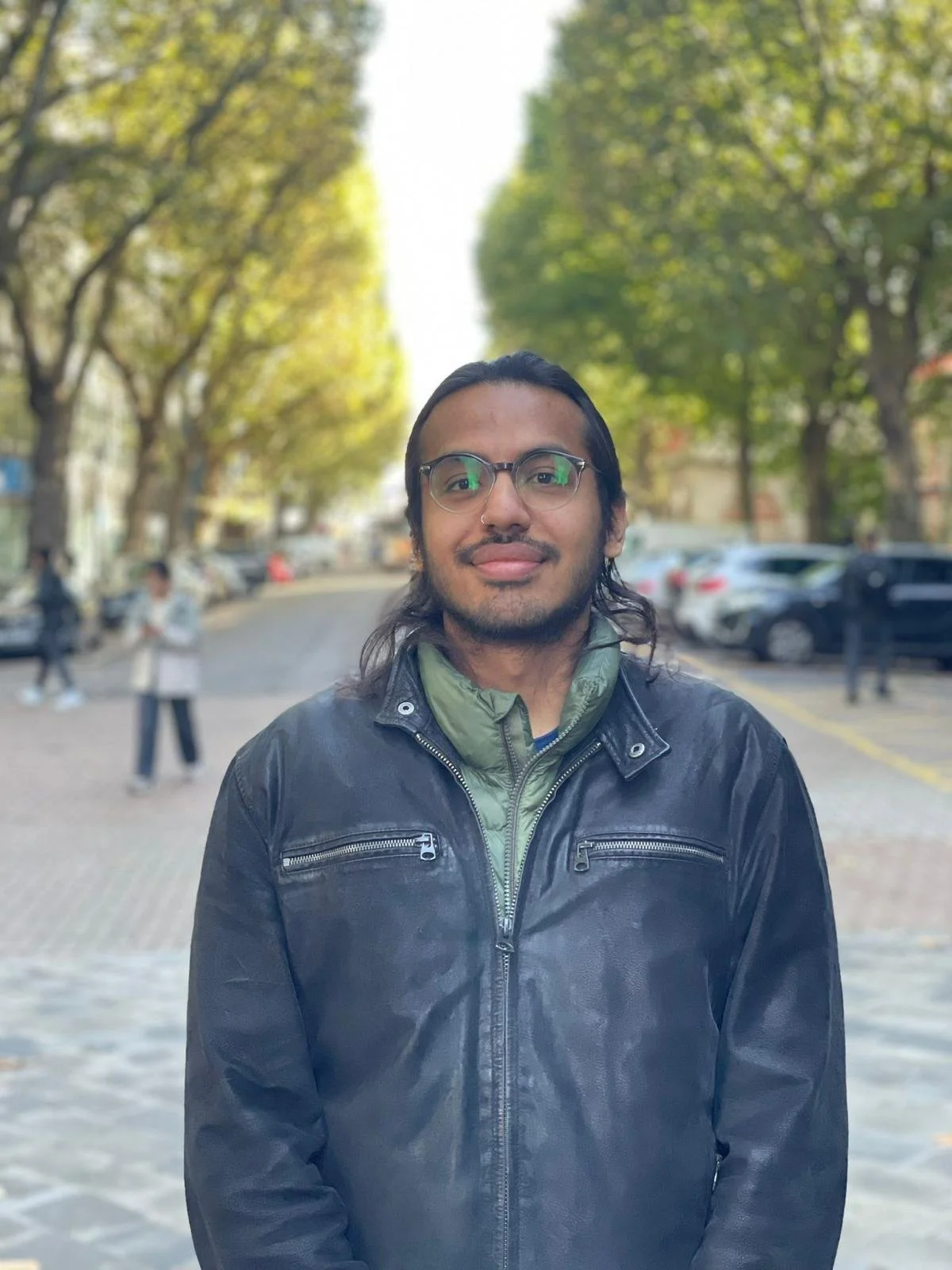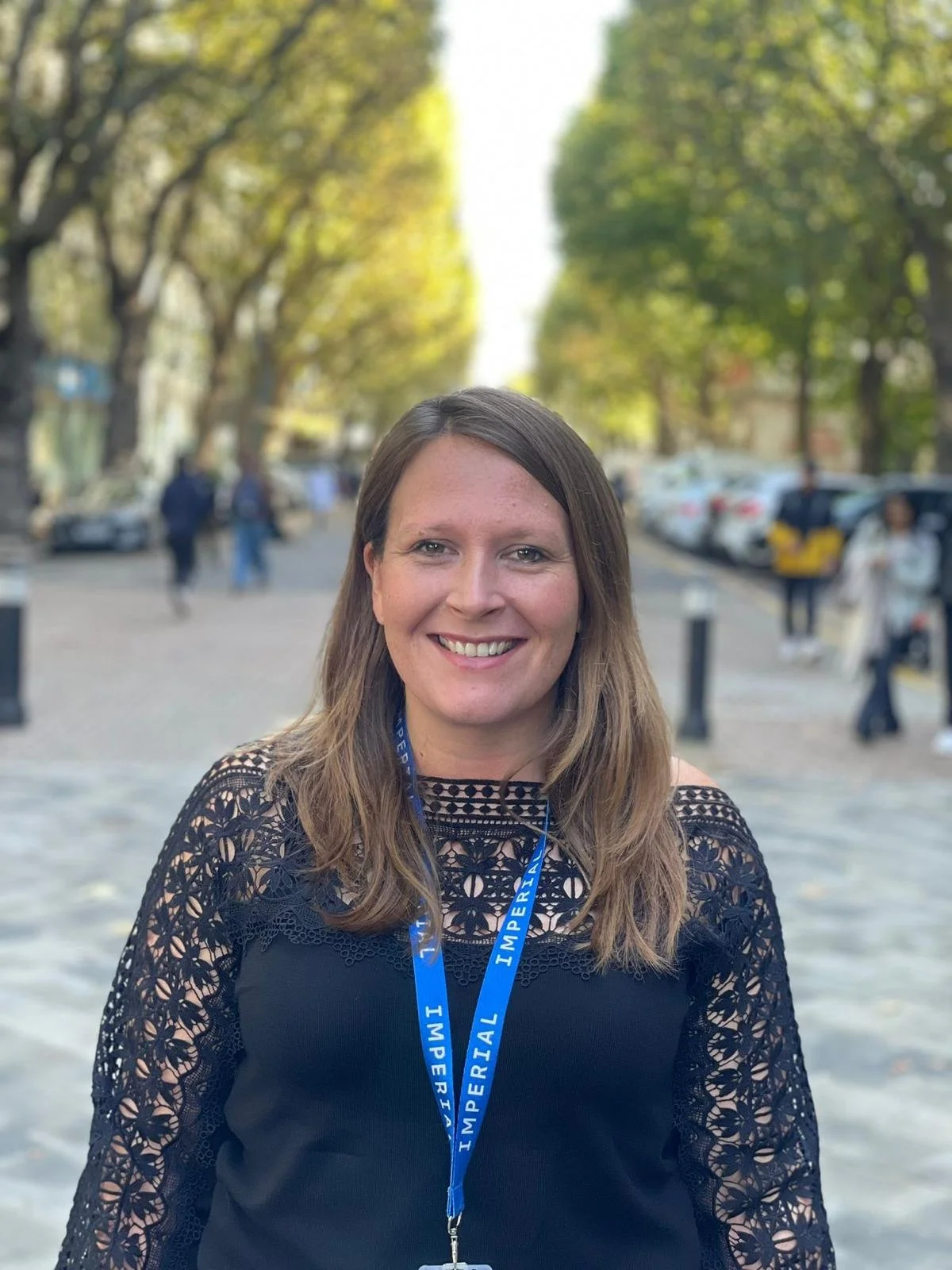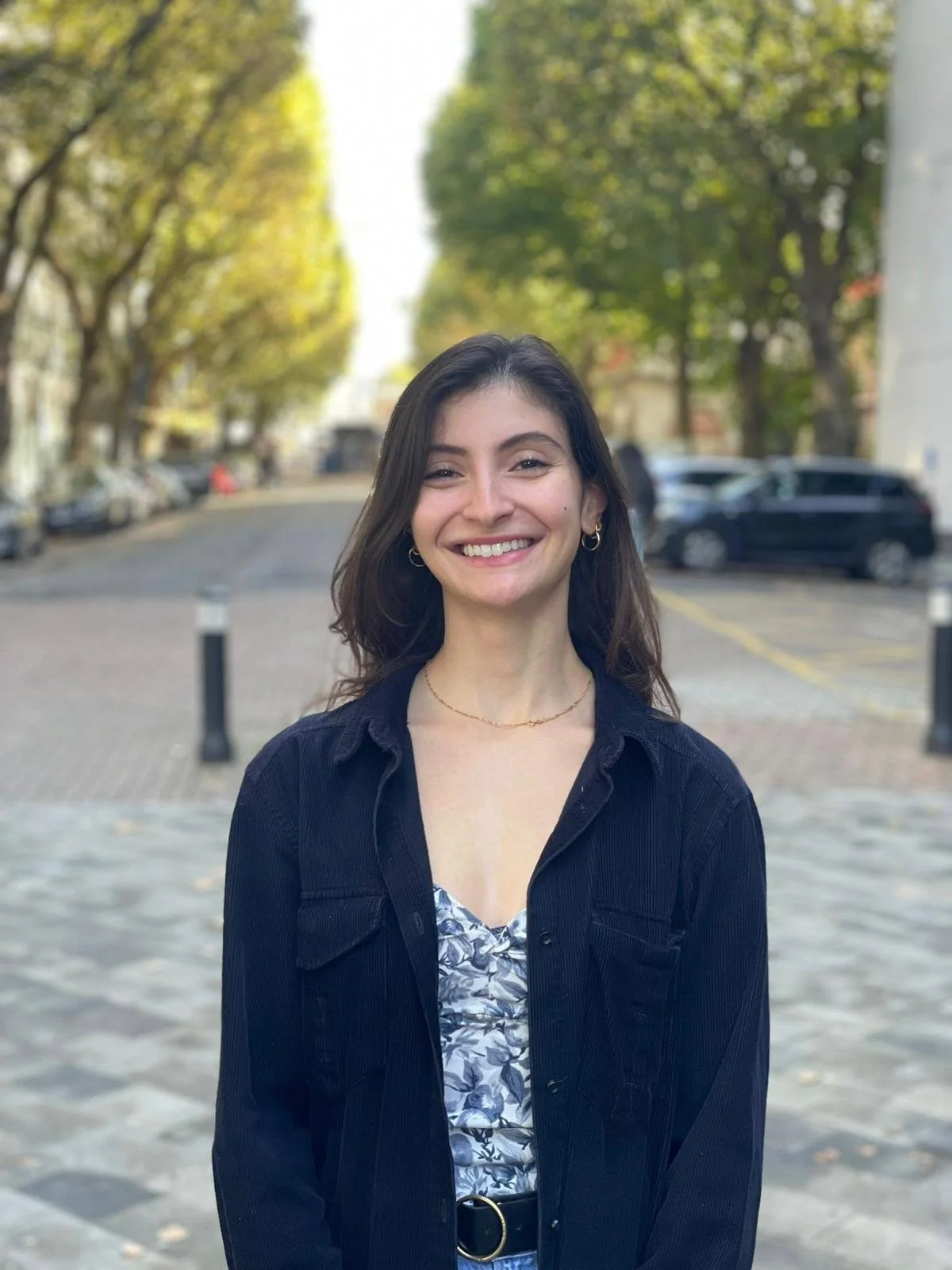

Team
meet the team
Team
meet the team
Matthew Child
Principal Investigator
Matthew studied for a PhD in molecular parasitology with Prof. Mike Blackman at the National Institute for Medical Research, London, UK. After his PhD, he moved to the USA to continue his academic career as a post-doc in the chemical biology laboratory of Prof. Matt Bogyo at Stanford University, California. His group is currently based at Imperial College London, where he is currently funded as a Wellcome Trust & Royal Society Sir Henry Dale Fellow. Part-man, part-fish, part-yeti, Matthew is a keen swimmer, skier, and avid cook.
Janessa Grech
Post-doctoral Research Associate (Life Sciences)
Janessa has been in love with Toxoplasma ever since they met back in 2017. She worked on the parasite during her MSc. at the University of Glasgow under the supervision of Prof. Lilach Sheiner, where she worked on two proteins localising to the mitochondria. She then went on to investigate Toxoplasma actin- and Golgi-related proteins during her PhD at the Ludwig Maximilian University of Munich under the supervision of Prof. Markus Meissner. Janessa is now looking into PTMs, particularly palmitoylation and palmitoylated proteins. When not at the lab, Janessa can be found in one of the neighbouring museums, or reading a book and thinking about sunny Malta.
Fatima Taha
PhD Student (Life Sciences), co-supervised with Calvin Tiengwe
Fatima graduated with an MSci degree in Human Genetics from the University of Nottingham in 2020. After this, she worked as a research assistant in the Southgate lab at St George’s University of London where she worked on characterising the role of ATP13A3 in pulmonary arterial hypertension. Funded by the BBSRC (as part of Imperial’s widening participation programme) and co-supervised by Dr. Calvin Tiengwe, Fatima’s PhD focuses on how distinct ecological niches in a murine host shape Trypanosoma brucei population structure. Outside of the lab, you can find her in the dojo kickboxing or at home knitting.
Kevin Yeung
PhD Student (Chemistry/Life Sciences, co-supervised by Prof Yaliraki, Prof Tate, Dr Walport)
Kevin graduated from Princeton University with a degree in chemical engineering. Inspired by the work he did in de novo protein design, he is now pursuing a PhD in chemical biology to research new potential druggable sites in human disease-associated proteins and improve our understanding of allosteric mechanisms. As this is his first time living outside of the US, he spends his weekends traipsing around Europe, hiking in breathtaking locales, and definitely soaking in the sun when given the (limited) opportunity.
Gus Gus Green
Laboratory Mascot and Dog-toral Student
Gus Gus is a four-year old white Labrador retriever studying for his dog-torate in naptime at Imperial College London. Trained by Patriot PAWS Service Dogs in Rockwall, Texas, his most notable research projects include, "The Art of Snoring so Loud You Startle Yourself Awake" and "A Detailed Investigation into Convincing Others to Share Snacks with You." In addition to assisting his handler inside the lab and out, he is a dedicated morale booster, entertaining Imperial faculty and students through his strict adherence to lab safety.
Akash Das
Post-doctoral Research Associate (adopted)
Akash doesn't really know how to describe his research focus. He does things! He likes making big datasets and building models from these datasets. He is currently working on the development of high-throughput CRISPR workflows for a variety of chemical and genetic screens. Outside of the lab, he is your classic cat dad (whatever that means) and spends his time climbing, consuming music, and playing video games.
Konstantina Arvaniti
PhD Student (Chemistry/Life Sciences, co-supervised by Prof Tate, Prof Yaliraki, Prof Barahona)
Konstantina graduated from Imperial College London with an MRes in Drug Discovery and Development. Inspired by conducting research on the frontline of the battle against drug-resistant pathogens, she is now pursuing an MRes+PhD in Chemical Biology, focusing on the systematic prediction, validation, prioritisation and on-target lead discovery for next-generation antimicrobials. With an interdisciplinary background in chemistry, biochemistry, and microbiology, she aims to develop a platform for mapping the Achilles' heel of existing and emergent pathogens. Outside the lab, she enjoys running, listening to jazz and exploring London’s diverse neighbourhoods.
Daisy Yu
Molecular and Cellular Biosciences MRes Graduate (Life Sciences)
Daisy has been fascinated by the intricate world of parasitology and cell biology ever since she began her academic journey at Imperial College London, where she completed both her BSc in Biological Sciences and MRes in Molecular and Cellular Biosciences. During her master’s project, she worked in this very lab under the supervision of Dr. Matt Child, investigating the interactions between host lectins and Toxoplasma surface proteins. Now Daisy is back in the lab as a research assistant, focusing on the functional validation of ligandable allosteric sites in intractable drug targets while continuing to explore Toxoplasma host-pathogen interactions. When she’s not in the lab, you can find her capturing moments through her camera lens, experimenting with new recipes in the kitchen, or enjoying a good movie.
Daniel Anderson
Part of the lab’s first tool development team, Daniel is currently working towards his PhD at EMBL-EBI. He continues to support lab tool development projects, cleaning code and squashing bugs.
Kimberley Reid
Post-doctoral Research Associate, Life Sciences
Dr Reid (Kim) joined the lab in 2024 as our resident clinical variant interpretation guru. Well-versed in the language of clinical science and clinicians, she helps the lab navigate this work, bringing wide-ranging disease insight and technical expertise for experimentally validating variant function. When not juggling science, children, and property renovation projects, you can find Kim championing STEM and ECRs. A self-described travel princess, Kim prefers to not prepare experimental reagents that she can purchase. Kim does not come with buffers included.
Sarah Hassan
Post-doctoral Research Associate, Life Sciences
Dr Hassan (Sarah) joined the lab in 2024 having been poached from Prof. Ed Tate’s lab following the completion of her PhD. Sarah is our mass-spectrometry ninja – the proteomic equivalent to Captain Planet, she is capable of drawing upon the technical power of diverse platform methodologies for singular automated high-throughput workflows and functional mechanistic analyses. Why study one protein when you can study them all? Outside of the lab, you can find Sarah salsa dancing, crushing weights in the gym, or hiding from high-maintenance Sphinx cats.
Lab Alumni
Lab mascot: Gus Gus Green (Dog-toral Student) - ongoing honorary photo representation
Graduated PhD students: Henry Benns, Ceire Wincott, Lucy Watson
Post-docs: Gisela Lourenco-Henriques, Eduardo Alves
Visiting Researchers: Prof. Ana Patricia Yatsuda Natsui, University Sao Paolo, Brazil
Masters Students: Signe Lagercrantz, Kristy Ke, Henry Benns, Frida Svanberg-Frisinger, Gayathri Sritharan, Wen Wen Low, Mai Ito, Sze Lui, Sofia Pedersen, Natasha De Winter, Holly Baker, Hailun Li, Yuelang Yao, Yi Ong, Freedom Green, Eunji Hong, Mathias Fagbemi, Aisling Fairweather, Becky Otoxby, Hannah Philips, Soomin En, Daisy Yu, Caleb Eferakorho
Undergraduates: Chris Chan, Lilian Magnus, Daniel Anderson, Oana Popescu, Melanie Ng, Tamas Dobai, Kenta Renard, Sifeng Chen, Elena Kayayan, Justin Bauer, Celeste Callafe, Krishna Keerthana, Tony Ye, Jiali Wu, Selina Hung, Melanie Teng, Noah Kim, Annabel Corrie, William Wang, Saiji Uehara, Dan Yamamoto, Annabel Rice, Ellen Riggs, Annika Schmalstieg, Matilda Jones
you?
you?
you?
you?
Post-doctoral fellows
We welcome informal enquiries from potential post-doctoral research fellows with outstanding research track records who are prepared to apply for independent research funding, for example from the European Union, HFSP, etc. Full assistance will be given in preparing a competitive research proposal
Please contact us via email with a CV and covering letter attached, or apply directly for open positions through the Imperial College recruitment pages.
PhD studentships
Our group is very happy to provide support for future PhD candidates. Students interested in undertaking postgraduate research in our group should contact the lab directly; all prospective applicants should have or expect to obtain a 1st class honours degree (or equivalent) in chemistry, chemical biology, biochemistry, or a closely related discipline; non-UK students must be able to obtain independent funding for their studies, e.g. via a government bursary.

